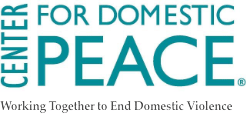Tools
How You Can Help – Someone in need
Actions you can take to help someone you know
- If you would like to talk to a trained advocate about your friend, call our bilingual hotline anytime, day or night.
- Learn the warning signs of an unhealthy relationship so you can be educated about the issue. (click to those)
- Don’t blame or make your friend feel guilty. Domestic violence is complicated and many stay in relationships that are unhealthy for a variety of reasons, so lend an ear or shoulder. Let them know you are a safe place to come to.
- Let the individual know that without intervention, abuse often escalates in frequency and severity over time. Seek expert assistance. Make referrals only to specialized domestic violence programs, not to couples counseling.
- Some think calling the police is the best option, but that can be tricky. There are many things to consider before you call (link to http://www.thehotline.org/2015/06/11/someone-i-know-is-being-abused-should-i-call-the-police/
Actions you can take if you hear abuse nextdoor or witness it
If you are aware that the abusive partner has a history of violence, is aggressive, or you have any other concerns for your well-being – do not intervene. You always have the option of making an anonymous 911 call.
Other things you might consider doing:
- Speak with the person you believe is at risk, in person, the next day. You might greet that person with a question like, “Hey, I heard some noises that concerned me last night. Are you okay?”
- Be sure to approach the person in a safe, private space, listen to them carefully and believe what they have to say.
- Never blame the person or ask what they did to “provoke” their partner.
- Let them know the abuse isn’t their fault, and that they deserve support.
- You might give them C4DP’s contact information. 24-Hour Bilingual Hotline 415.924.6616
- If you are ever concerned for the individual’s immediate safety (or your own), you do have the right to contact the police. You can request a wellness check, anonymously.
- If the survivor decides to press charges against the abusive partner, your statement can be one way to help them document what they’ve experienced.
